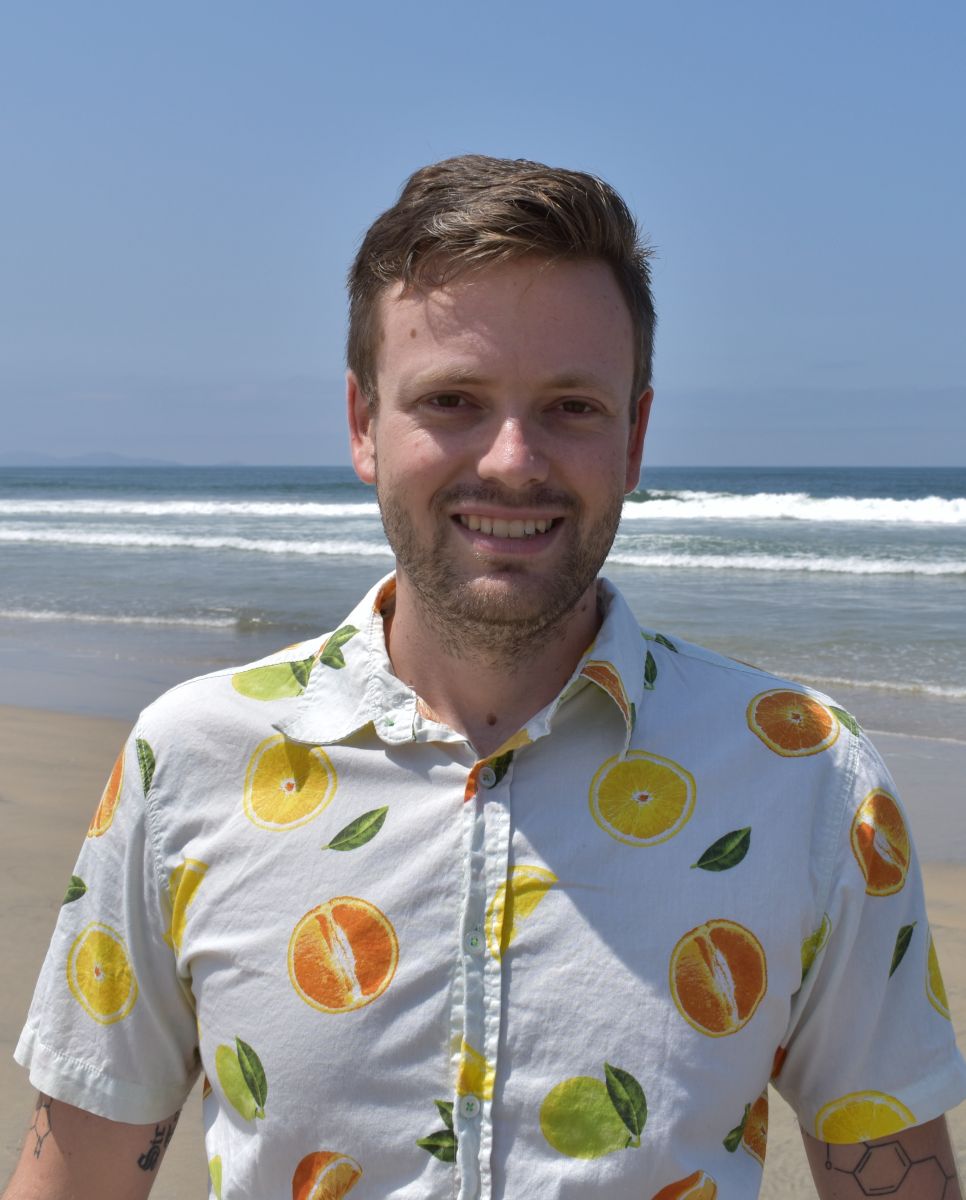 I Am A Researcher!
I Am A Researcher!
Jacob Ross
Year at UC San Diego: 3rd year / Junior
College: Eleanor Roosevelt
Major: Neurobiology
URH Program: STARTneuro
What are you researching?
In the Brain Mechanisms of Pain and Health Lab under the mentorship of Dr. Fadel Zeidan, I have been working on several different clinical studies in a variety of ways. Right now, I am working with a postdoc and two of the more senior research technicians in the lab to iron out the details of an upcoming clinical study examining the neural mechanisms of vaporized cannabis-induced analgesia and examine its efficacy in reducing both acute and chronic pain utilizing functional magnetic resonance imaging (fMRI.) Working out the logistics of the study design and figuring out how to safely move subjects from the negative-pressure room in the clinic where they consume the cannabis down to the MRI scanner in another part of the building has been an interesting adventure. Recently, the lab finished data collection in a double-blind clinical study examining the efficacy of mindfulness mediation in reducing pain and testing whether the analgesic effects are mediated via different neural pathways. I’ve had the opportunity to do everything from data collection to facilitating mindfulness meditation intervention sessions with subjects to right now working with another lab involved in engineering and materials science to redesign and 3D-print an improved piece of equipment we use across several studies to deliver controlled heat stimuli. I’m looking forward to beginning data collection on several new studies involving a variety of fMRI techniques.
Why and how did you decide to get involved in undergraduate research?
For me, the science and brain mechanisms underpinning the experience of pain is something that I find especially intriguing, in part due to my own struggles with chronic back pain after my service in the US Navy. Being able to glean new insights from the work being done in the lab every day about how our brains receive and process the signals we interpret as pain keeps me excited and motivated to bring my best efforts to the lab every day. Last summer, I began reading Dr. Zeidan’s published studies spanning more than a decade of research into the brain mechanisms of pain, and realized his lab would be an excellent place to develop my skills as a scientist and truly be on the cutting edge of the field of pain research. With the guidance of Dr. Ashley Juavinett and Dr. Brenda Bloodgood, I reached out to him and quickly found myself welcomed into the lab and beginning to work on several different fascinating studies; I haven’t looked back since.
What has been the most exciting/interesting thing you've discovered through your research?Given that we know so little about the science of substances like cannabis and psilocybin, having the opportunity to contribute to studies helping to illuminate their activity in the human brain is truly exhilarating. Whether it be mindfulness mediation, cannabis, or psilocybin, exploring the neuroscience of these substances gives me great hope for the development of new treatments for a whole host of conditions this nation’s veterans suffer from ranging from chronic pain to anxiety and depression to post-traumatic stress disorder. I find myself reading new papers and pondering new questions even in my off hours, and that affirms in my mind that I’ve found something I’m truly passionate about and want to pursue in my scientific career.
How are you persisting during the COVID-19 crisis?
The COVID-19 pandemic has been a challenge for everyone, perhaps most of all us as students. Part of what has allowed me to maintain a level head and do well in this environment has been ensuring I take time to take care of myself, whether that’s building in time each day to take my dog on a walk through the neighborhood, or get outdoors and exercise and appreciate nature. We are lucky to have the campus situated so close to the majesty of places like Torrey Pines State Preserve and the tide pools up at Point Loma; I take great enjoyment from snorkeling at La Jolla cove.
What are your future plans/goals?
Working in this lab, surrounded by a cohesive team of scientists at different points in their careers each with different backgrounds and sets of skills and perspectives they bring to the work being done has instilled in me a desire to make a career out of translational research, and I plan to apply to and pursue a PhD in neuroscience as soon as I graduate with my B.S. in neurobiology. The studies in this lab span the realms of everything from neurobiology and neurophysiology to clinical psychology, and that has made me appreciate that the field of neuroscience has truly endless possibilities and lines of scientific inquiry.
What advice would you give to students starting into research work?
One of the most important skills I’m continuing to develop is the ability to dissect and analyze scientific papers. Whether you want to do research with human subjects, mice, flies, etc, being able to read, understand, and explain to others the content of a paper and someone else’s research is a skill that any scientist beginning their career in research to hone and maintain.